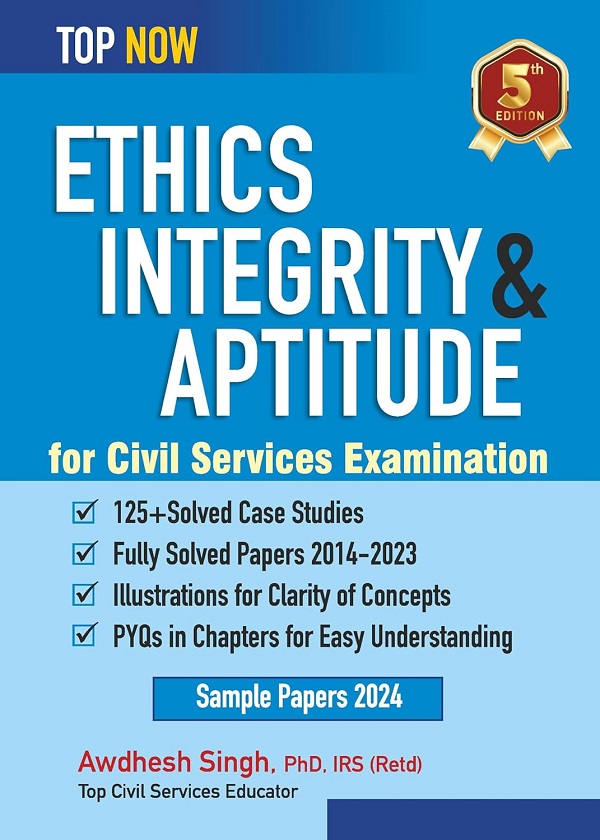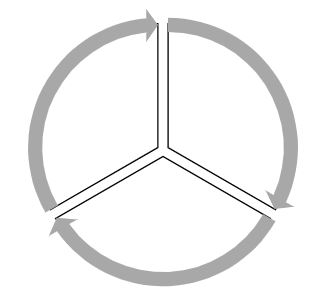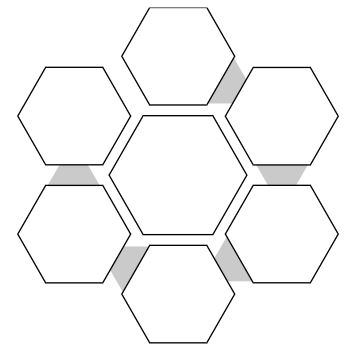Ethics, Integrity & Aptitude for Civil Services Examination
By Awdhesh Singh
Fifth Edition, Paperback – 17 December, 2023
Covers the Complete Syllabus of ‘Ethics, Integrity and Aptitude’ (GS-4) for UPSC Civil Services. 125+ Solved Case Studies; Fully Solved Papers 2014-2023; PYQs in Chapters for Easy Understanding; Sample Papers 2024.
Best Ethics Book for UPSC : Highlights
- All concepts explained in simple language for easy understanding.
- Practical tips for answer writing.
- Tips to solve case studies following simple steps.
- Identification of common mistakes and resolution.
- Numerous case studies for clearing concepts.
- Exercise after each chapter to practice answers.
Reviews From Amazon
Best Book for Ethics, Integrity and Aptitude
This is definitely the best Book for Ethics for UPSC CSE. Topics have a logical flow and have been written in a lucid language, supplemented with real life examples to make logical connections. Sir’s experience as an IRS officer for 20+ years and a teacher for Ethics and Essay writing, makes this book even more rich. Go for it!
Complete solution for GS paper 4
This book is a gem that gives you an edge over the competitors who are busy reading other options in the market- which are either too detailed or have too little relevant information. Add this to your UPSC Book list and you are done with 1/4th of your GS syllabus- this is a complete solution for GS paper 4, including tips for solving case studies and solved papers for previous years! The language is such that it feels as if Sir himself is teaching, sitting next to us! Go for it without second thought- no need of any other source for Ethics paper.
Comprehensive coverage of the syllabus
Book is in simple language along with comprehensive coverage of the syllabus unlike other books for ethics in the market which are very bulky this book is very precise and to the point you can choose it over lexicon and subbarao.
One stop solution for ethics
This is the best book for ethics. The book contains previous year papers with solution and even more case study and life lessons.
Not just an ethics book but it’s a book of life lessons
I have been following Awdhesh sir on unacademy and his lectures are quite realistic (for case studies), in simple language so easy to understand for theory part of GS-4 syllabus. This book is a treasure trove for all those who are looking for a one stop solution to cover the syllabus of GS-4 for UPSC CSE preparation and also for those who want to be a good and responsible citizen.




